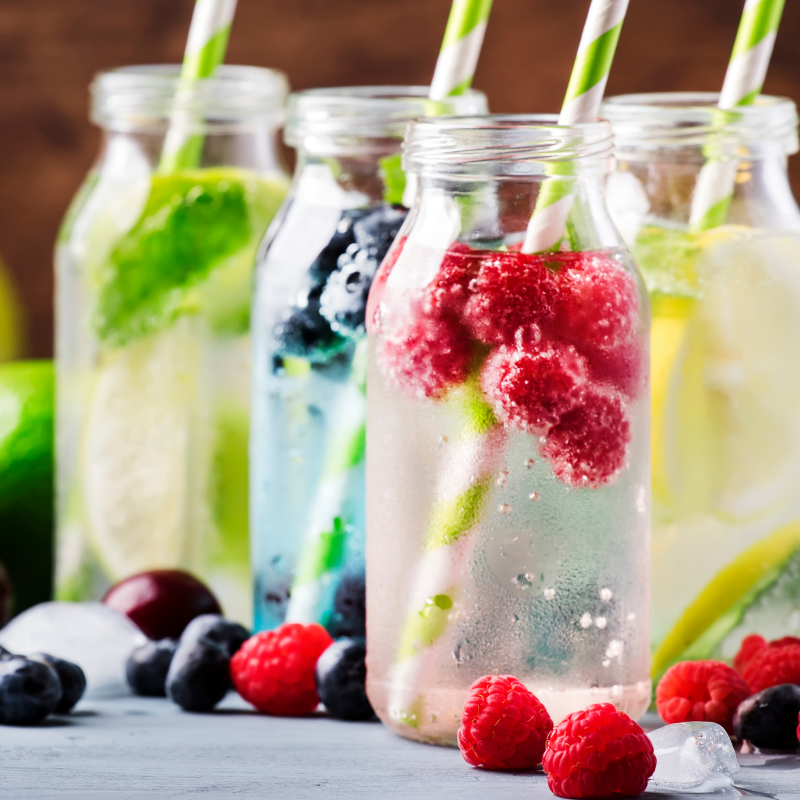Legend has it that one day some 5,000 years ago, a leaf was blown into a pot of water being boiled for Ancient China’s first Emperor, Shen Nung, leading to the accidental discovery of tea. Of course, nobody knows if that story actually happened –the origins of tea have always been a hotly debated topic, shrouded in myths and legends. But what we know for certain is that this popular beverage offers a variety of evidence-backed health benefits, including protecting your brain against age-related cognitive decline.
Health Benefits of Tea
Although there is evidence showing that Ancient Chinese civilizations were already consuming tea thousands of years ago, Western Europe’s love affair with tea didn’t start until the 1600s. When tea first arrived in Britain, it was sold as a natural remedy for a multitude of ailments, including indigestion, scurvy, and grief. In 1650, tea was brought from British colonies to the United States, where it became an instant favorite of many settlers, who at one point consumed more tea than all of Britain combined.

Tea plantation
Today, tea is the second most consumed beverage on the planet – right after water. It’s even more popular than coffee, beer, and soda – and it’s a lot healthier, too. Studies have shown that different types of tea may lower “bad” cholesterol, help with some types of cancer and heart disease, and improve gut health, among other benefits. And now, a recent neuroimaging study published in the medical journal Aging is giving tea lovers another reason to stock up on these mighty leaves: people who drink tea at least four times a week have healthier brains than non-tea drinkers.
The study, led by researchers from the University of Singapore, looked at the tea-drinking habits of 36 healthy old adults. Participants were asked to recall how many cups they drank in a day, what type, and other tea-related behaviors and divided them into two groups: tea drinkers and non-tea drinkers. Volunteers also had to undergo neuropsychological tests and magnetic resonance imaging (MRI) to measure brain function and structural changes.
Results suggested that participants who drank green, black, or oolong tea at least four times a week over a period of about 25 years showed better connectivity between the right and left hemispheres of the brain and better overall functional connectivity. Other studies have shown that well-organized and interconnected brain regions can process information more efficiently and seem to slow down cognitive decline.
But while tea’s seemingly never-ending list of health benefits may be more than enough of a reason to pour yourself another cuppa, remember that how you drink your tea matters. Even though your tea with sugar or honey won’t counteract its health effects, high added sugar intake has been linked with memory and attention issues, cognitive decline, and structural changes in several regions of the brain.
More about tea…
In the US, black tea consumption far outweighs the other two types of tea. In contrast, in Asia, green tea is the more common variety; in Southern China, oolong tea tops the charts.
Black, green and oolong tea are made from the same plant. The unique flavor profiles for each of these teas are due to differences in how the leaves of the Camellia sinensis plant are processed. Herbal teas, however, are not made from the same plant. These teas are products of the roots, leaves, flowers and other components from a variety of plants. Chamomile and peppermint are two popular herbal teas. Chamomile is made from the plant’s flowers and peppermint from the leaves of a mint plant.

Caffeine and Nutrients Found in Tea
Black, green and oolong tea all contain caffeine. Black tea has more caffeine than green tea. However, the caffeine content also relates to the brewing process. The longer the tea steeps, the greater the caffeine content. Caffeinated teas typically have less caffeine than coffee:
- One 8-ounce cup of coffee contains about 95 milligrams of caffeine.
- An equal amount of black tea has around 48 milligrams.
- In a cup of green tea, there are only 29 milligrams.
- Oolong provides about 38 milligrams of caffeine per cup
- Decaffeinated black, green, oolong teas contain very small amounts of caffeine.
- Many herbal teas are caffeine-free.
Too Much of a Good Thing: Health Risks of Tea
Though there are lots of good things about consuming tea, overdoing it can put your health at risk.
One risk is a caffeine overload. Large amounts of caffeine may lead to nervousness, restlessness and may disturb your sleep. Some people may also experience loose stools and other gastrointestinal issues. Nausea, abdominal pain, heartburn, dizziness and muscle pain are also possible side effects from consuming too much caffeine. It may also interact with certain medications and increase the effects of caffeine in the body. Total daily intake of caffeine from all sources should not exceed 400 milligrams.
Popular Herbal Teas for Health
Rooibos Tea is gaining popularity as a delicious and healthy beverage. Consumed in southern Africa for centuries, it is flavorful, a caffeine-free alternative to black or green tea, and it is praised for its potential health benefits, claiming that its antioxidants can protect against cancer, heart disease and stroke.

Rooibos tea
Hibiscus Tea is made from the colorful flowers of the hibiscus plant. It has a pink-red color and refreshing, tart flavor. It can be enjoyed hot or iced. In addition to its bold color and unique flavor, hibiscus tea offers healthful properties.
For example, hibiscus tea has antiviral properties, and test-tube studies have shown its extract to be highly effective against strains of the bird flu. However, no evidence has shown that drinking hibiscus tea could help you fight off viruses like the flu.
Ginger Tea is a spicy and flavorful drink that packs a punch of healthy, disease-fighting antioxidants. It also helps fight inflammation and stimulates the immune system, but it’s most well known for being an effective remedy for nausea.
Studies consistently find that ginger is effective at relieving nausea, especially in early pregnancy, although it may also relieve nausea caused by cancer treatments and motion sickness. Evidence also suggests that ginger may help prevent stomach ulcers and relieve indigestion or constipation. Ginger may also help relieve dysmenorrhea, or period pain. A number of studies have found that ginger capsules reduced pain associated with menstruation. In fact, two studies found ginger to be as effective as non-steroidal anti-inflammatory drugs (NSAIDs) like ibuprofen at relieving period pain
Peppermint tea is one of the most commonly used herbal teas in the world . While it’s most popularly used to support digestive tract health, studies show it also has antioxidant, anticancer, antibacterial and antiviral properties. Evidence also shows that peppermint oil is effective at relaxing spasms in the intestines, esophagus and colon. Lastly, studies have repeatedly found that peppermint oil is effective at relieving symptoms of irritable bowel syndrome.
Echinacea tea is an extremely popular remedy that’s said to prevent and shorten the common cold. Evidence has shown that echinacea may help boost the immune system, which could help the body fight off viruses or infections. Many studies have found that echinacea can shorten the duration of the common cold, lessen the severity of its symptoms or even prevent it. However, results are conflicting, and most studies have not been well designed. This makes it difficult to tell if positive results are due to echinacea or random chance. Therefore, it’s not possible to say definitively that taking echinacea will help with the common cold. At the very least, this warm herbal drink may help soothe your sore throat or clear up your stuffy nose if you do feel a cold coming on.
A Nice Cup of Tea
Although more research is needed to pin down all of its benefits, tea can be part of a healthy eating pattern. It is best to brew it yourself so you can control the amount of added sweetener (sugar, honey, etc.)
The Best Way to Brew Tea
- Fill your kettle with fresh water. Water that has been previously boiled loses oxygen and can weaken the flavor of your tea.
- Heat your tea to the proper temperature. (Black: 195-205 degrees F.) Green 175, Herbal 208, Oolong 195)
- Warm the teapot and/or your mug with hot water.
- Add your tea.
- Pour the water and brew the tea. Steep black tea for 2-3 minutes. Green-45 sec to 1 min. Herbal or Rooibos 5-6 min. Oolong 3 min. Over-steeping can result in bitter tea.
- Relax and enjoy!


